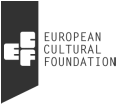IF BUILDINGS COULD TALK
Partners: FRU - Faculty of things that can’t be learned, Bitola, Macedonia; Shadow casters, Zagreb, Croatia; Supervizuelna, Belgrade, Serbia
If buildings could talk (IBCT) is a collaborative project that unfolds the delicate, inner traces of the erasure of collective memory of the local history, exemplifying in through concrete urban spaces (buildings and their surroundings) which are/were landmarks in one city/area. This obliteration leads towards almost unrecognizable change of the local context affecting entire communities and various social strata as well as the overall urban tissue. IBCT attempts to speak creatively and interdisciplinary about local urban problems, sometimes relating to a single building or block - business or for living - in all partner cities. Through detailed analysis of this building/block components, contextualized with its surrounding and historical developments, IBCT relates to the tendencies of (un)solidarity, degradation, (re)newel of reality - showing also which are the conflicts in those buildings/blocks that potentially open ruptures in the general societal structure. The setting of IBCT is cruel and unpredictable period of so-called “transition” which tendentiously cleans all ideological, political, social, cultural and ethical components of the previous period. In a “wild” and naive desire for EU, trying to keep up with the late capitalist economic model, these policies have serious impact on community but also on the everyday life of the individual. Thus, the project - developed in Skopje, Belgrade, Zagreb and their local communities - acts as an envoy towards change of the perception, of thinking and acting, setting up an entire agenda of activities such as a performative game-structures containing the elements of theatre, film, lecture and exposed in public workshops, and walking tours “plays”, taking building as a reference (historical, architectural, political, artistic) point.
If buildings could talk (IBCT) is a collaborative project that unfolds the delicate, inner traces of the erasure of collective memory of the local history, exemplifying in through concrete urban spaces (buildings and their surroundings) which are/were landmarks in one city/area. This obliteration leads towards almost unrecognizable change of the local context affecting entire communities and various social strata as well as the overall urban tissue. IBCT attempts to speak creatively and interdisciplinary about local urban problems, sometimes relating to a single building or block - business or for living - in all partner cities. Through detailed analysis of this building/block components, contextualized with its surrounding and historical developments, IBCT relates to the tendencies of (un)solidarity, degradation, (re)newel of reality - showing also which are the conflicts in those buildings/blocks that potentially open ruptures in the general societal structure. The setting of IBCT is cruel and unpredictable period of so-called “transition” which tendentiously cleans all ideological, political, social, cultural and ethical components of the previous period. In a “wild” and naive desire for EU, trying to keep up with the late capitalist economic model, these policies have serious impact on community but also on the everyday life of the individual. Thus, the project - developed in Skopje, Belgrade, Zagreb and their local communities - acts as an envoy towards change of the perception, of thinking and acting, setting up an entire agenda of activities such as a performative game-structures containing the elements of theatre, film, lecture and exposed in public workshops, and walking tours “plays”, taking building as a reference (historical, architectural, political, artistic) point.




